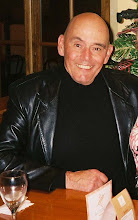Amira Hass, perhaps the best columnist writing in the Jerusalem daily Haaretz, is famed for her reporting from the Palestinian territories. Today, she slams her nation’s government for its repeated attacks on Gaza, beginning with the timing of the initial raid last Saturday – and goes on from there, in increasingly angrier tones.
How We Like Our Leaders
– by Amira Hass
This isn't the time to speak of ethics, but of precise intelligence. Whoever gave the instructions to send 100 of our planes, piloted by the best of our boys, to bomb and strafe enemy targets in Gaza is familiar with the many schools adjacent to those targets - especially police stations. He also knew that at exactly 11:30 A.M. on Saturday, during the surprise assault on the enemy, all the children of the Strip would be in the streets - half just having finished the morning shift at school, the others en route to the afternoon shift.
This is not the time to speak of proportional responses, not even of the polls that promise a greater share of Knesset seats to the mission's architects. This is, however, the time to speak of the voters' belief the operation will succeed, that the strikes are precise and the targets justified.
Take, for example, Imad Aqel Mosque in Jabalya refugee camp, bombed and strafed shortly before midnight on Sunday. These are the names of the glorious military victory we achieved there - Jawaher, age 4; Dina, age 8; Sahar, age 12; Ikram, age 14; and Tahrir, age 17, all sisters of the Ba'lousha family, all killed in a "precise" strike on the mosque. Another three sisters, a 2-year-old brother and their parents were injured. Twenty-four neighbors were wounded and five homes and three stores destroyed. This part of the military victory did not open our television or radio news broadcasts yesterday morning, nor did they appear on many Israeli news Web sites.
This is the time to speak about the detailed maps in the hands of IDF commanders, and about the Shin Bet advisers who know the exact distance between the mosque and nearby homes. This is the time to discuss the drone planes and the hot air balloons fitted with advanced cameras floating over the Strip day and night, filming everything.
This is the time to rely on legal advisers studying the operation to find the right phrasing to justify "collateral damage." Time to praise Foreign Ministry spokespeople who in their polished language, with their elegant South African or charmant Parisien accents, say it is the fault of Hamas, which uses neighborhood mosques for its own purposes.
Talk of double standards has always been moot. Maybe there was a huge weapons store in the mosque. Maybe Al-Aqsa Martyrs' Brigades militants met there every night and from there planned to launch their upgraded fighter jets.
Where does the IDF Chief of Staff sit when he draws up war plans? Not in the Sahara, or even in the Negev. What would happen if someone blew themselves up at the entrance to Tel Aviv's Cinematheque movie theater, and those who sent him said sorry, but he was headed for the Defense Ministry down the street?
This is not the time to recall long-forgotten history lessons to say this is not the way to topple a government. Nor is it the time to make rational recommendations for balanced statesmanship. The time for such things has passed, along with the New Order we once arrogantly tried to establish in Lebanon, which only brought us Hezbollah. Along with the Orientalists' plans to reduce the popularity of the PLO, which only paved the way for the emergence of a militant Islamic nationalist movement.
The time of such recommendations has passed, along with the grab of Palestinian lands and hyperactive construction of settlements in the Oslo era, which only laid the cornerstone for the second intifada and the fall of Fatah.
The era of reason and judgment died long ago, even before the targeted assassinations of Fatah activists in the West Bank, which soon turned into shooting attacks on soldiers and the emergence of another few thousand young people taking up arms, not to mention the phenomenon of suicide bombers.
It is never the right time to say "we told you so," because once it is possible to say those words, they are already invalid. We cannot revive the dead, nor repair the damage caused by arrogance and megalomania.
This is the time to speak of our own satisfaction and enjoyment. Satisfaction from tanks once again raising and lowering their barrels in preparation for a ground attack, satisfaction from our leaders' threatening finger-waving at the enemy. That's how we like our leaders - calling up reservists, sending pilots to bomb our enemies and manifesting national unity, from Baruch Marzel to Tzipi Livni, Netanyahu to Barak to Lieberman.
Tom Degan
1958-2023
To all Tom’s faithful readers of the Rant, we are sad to announce that he
passed away on December 7th, 2023. Thank you so much for th...

